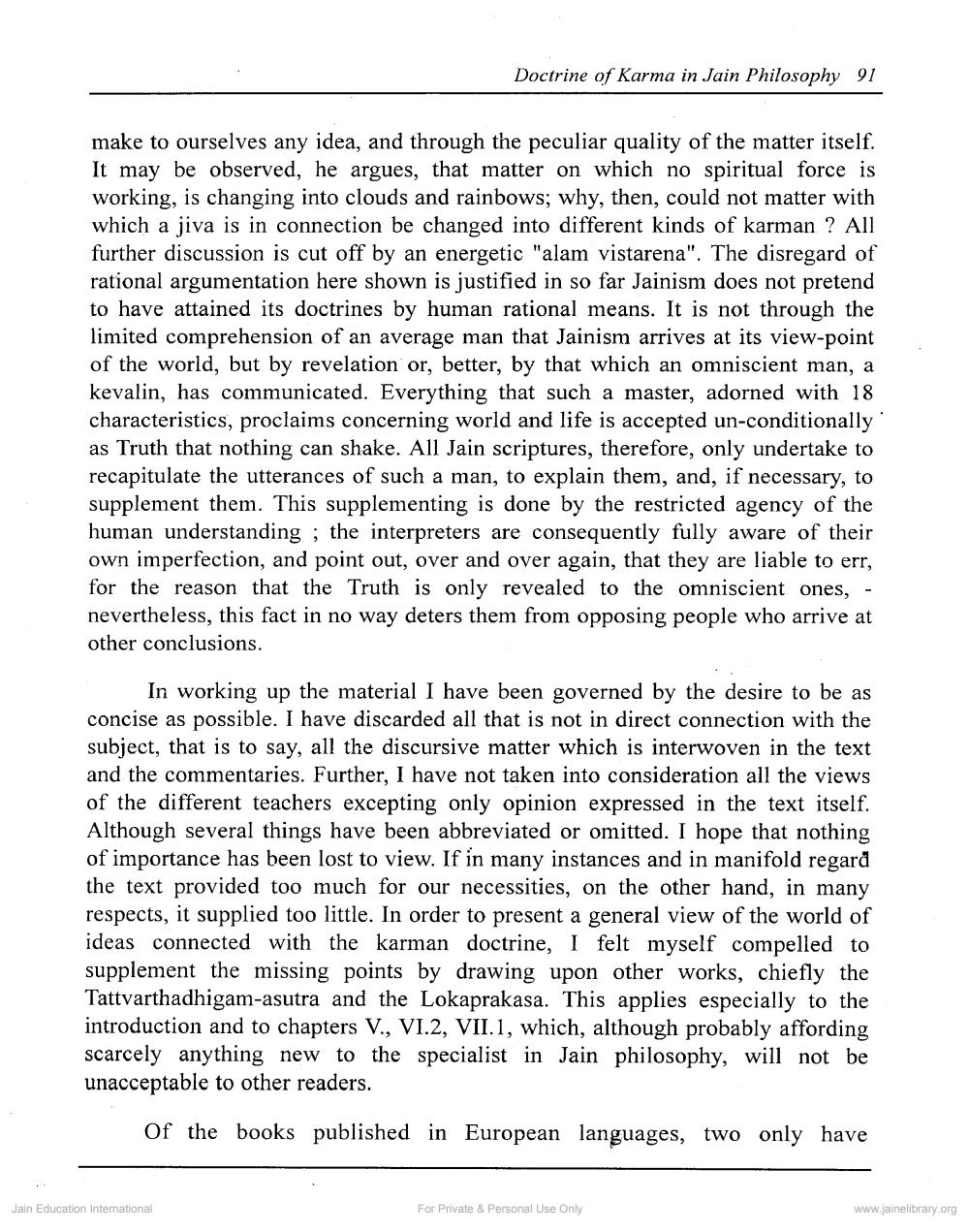________________
Doctrine of Karma in Jain Philosophy 91
make to ourselves any idea, and through the peculiar quality of the matter itself. It may be observed, he argues, that matter on which no spiritual force is working, is changing into clouds and rainbows; why, then, could not matter with which a jiva is in connection be changed into different kinds of karman? All further discussion is cut off by an energetic "alam vistarena". The disregard of rational argumentation here shown is justified in so far Jainism does not pretend to have attained its doctrines by human rational means. It is not through the limited comprehension of an average man that Jainism arrives at its view-point of the world, but by revelation or, better, by that which an omniscient man, a kevalin, has communicated. Everything that such a master, adorned with 18 characteristics, proclaims concerning world and life is accepted un-conditionally as Truth that nothing can shake. All Jain scriptures, therefore, only undertake to recapitulate the utterances of such a man, to explain them, and, if necessary, to supplement them. This supplementing is done by the restricted agency of the human understanding; the interpreters are consequently fully aware of their own imperfection, and point out, over and over again, that they are liable to err, for the reason that the Truth is only revealed to the omniscient ones, - nevertheless, this fact in no way deters them from opposing people who arrive at other conclusions.
In working up the material I have been governed by the desire to be as concise as possible. I have discarded all that is not in direct connection with the subject, that is to say, all the discursive matter which is interwoven in the text and the commentaries. Further, I have not taken into consideration all the views of the different teachers excepting only opinion expressed in the text itself. Although several things have been abbreviated or omitted. I hope that nothing of importance has been lost to view. If in many instances and in manifold regard the text provided too much for our necessities, on the other hand, in many respects, it supplied too little. In order to present a general view of the world of ideas connected with the karman doctrine, I felt myself compelled to supplement the missing points by drawing upon other works, chiefly the Tattvarthadhigam-asutra and the Lokaprakasa. This applies especially to the introduction and to chapters V., VI.2, VII.1, which, although probably affording scarcely anything new to the specialist in Jain philosophy, will not be unacceptable to other readers.
Of the books published in European languages, two only have
Jain Education International
For Private Personal Use Only
www.jainelibrary.org




